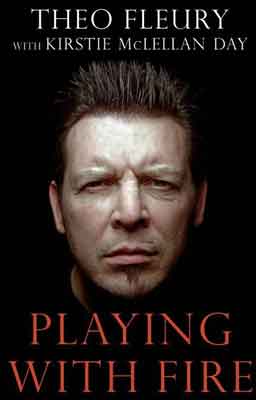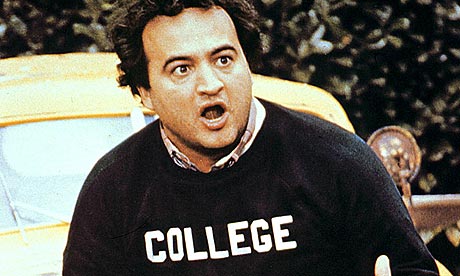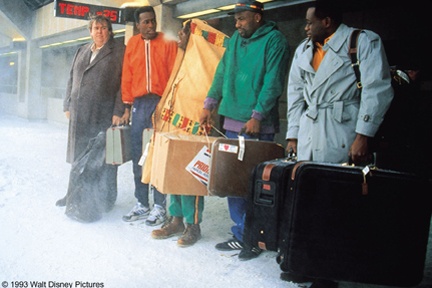My context of the stolen piece of literature is it represents the story, or stories rather, of the beginning, and how European arrival in North America served to erase and eliminate them from Native American culture. The story suggests that through stealing the piece of literature, Europeans thus laid claim to the story of the beginning. Thus any story of the beginning that was not coherent with the European rhetoric was in fact invalid, as it was them and them and only who held the true scripture. By stealing the piece of literature, they became the self-anointed chosen ones, despite the illegitimate nature of how it came to be. This story aligns itself with European efforts to impose their culture on the Native American peoples upon European arrival and settlement in North America. As evidenced throughout the chapter, it was not only the material and social aspects of European culture that would come to determine the future, but also the past. The elimination of Native American stories, achieved through a variety of mechanisms, was key to European dominance over the coming centuries.
However it can’t be ignored the significant bias that manifests itself in Robinson’s stories, a bias that paints all Europeans with the same brush, in such a way us modern Canadians are often accused of in our “ignorance” and “attitudes” towards today’s Native population. The stories all exhibit underlying tones of moral superiority on behalf of Native Americans, and evil on behalf of the Europeans. A black and white split between good and evil is not unusual for story-telling, I alluded to this in my 1:3 blog. This is particularly present in the story of the stolen literature, and to no ones surprise, the white man/European is Mr. Evil. The Indian twin, a clean-cut kid who “performed his duties exactly as instructed, while the younger twin [READ: White] stole a written document – a “paper” – he had been not to touch”. (Europeans stealing things… I sense a bit of foreshadowing here). The young thief’s punishment was exile to a distant land across the pond [READ: Europe], where he would then spawn descendents. But it would not be long before his mutant army returned to the place he once called home, only to fall victim to feelings of childhood nostalgia and wreak havoc over the good-to-do population his elder twin had created.
This isn’t to say European settlement of North America was fair, nor was the treatment of the Native Americans that were here prior. However, the story suggests that all Europeans are the descendants of a rogue mischievous thief, and thus it is in their nature to act accordingly. It more or less anoints the descendants of the good twin, Native Americans, as the chosen ones, and suggests the others, at least Europeans, are ill-willed and less credible. It is the same bias the story itself attempts to portray on behalf of the Europeans, and it was this paradoxical bias that struck a nerve with me while reading Robinson’s stories. How come it’s unfair and immoral to hold bias’ against the Native population, while their stories seemed to be littered with ones against people of my colour and heritage, which is for some reason entirely acceptable. This was a thought that echoed through my head while reading these stories, and served to disrupt my mood the more I read on.
Put down your pitchforks and torches…
I must admit, I have had a mixed past in dealings with First Nations people. I think it’s important to understand, especially for people living in areas where direct contact with First Nations people is far less prevalent than others (big cities and the like), we don’t live in a perfect world. People who come into contact with First Nations more often will have mixed experiences. It’s easy for someone who has never stepped foot on or lived nearby a reserve to dismiss any negativity towards First Nations as purely racist in nature. I grew up in an area that bordered a reserve. As such, I grew up playing hockey with my home rink on the reserve, and several Native kids as teammates. I had an in depth exposure to the Native population at a young age. As Theo Fleury alluded to in his book Playing With Fire, they made for some of the most talented players, but for a variety of reasons (attitude problems being the one I noticed first hand, though money is likely the biggest one) you see few of them in the NHL.

Fleury, who is of Metis Heritage, among other things, discusses his experiences on reserves and the troubles Native youths face in his book Playing With Fire. He has been a vocal advocate for understanding prejudice towards First Nations within Canada.
As I reflect on my experience with First Nations people, I often think of it coming with both the good and the bad. The reality of it is, it’s pretty much been 95% good, 5% bad, yet the bad always casts the bigger shadow. Moreover, it is often what we hear from others as opposed to see ourselves that often distorts perspectives. That’s not to say that there aren’t significant issues on both sides, and given the confrontational nature of past relations, it should come as no surprise that hostility exists on both sides, and that this is reflected in our stories. It’s a defence mechanism. However, as long as we understand why perceptions exist and what can be done to rectify them, we are moving forward in our attempts to eliminate their strain on the relationship.
Works Cited
Tychkowski, Robert. “A Fleury of Fury.” Canoe.ca. N.p., 21 Apr. 2005. Web. 17 Mar. 2014.

